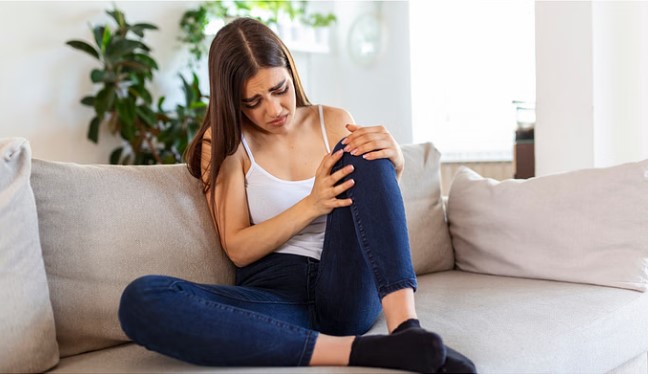
Joint Pain & Arthritis at 30: Causes, Risks, and Prevention Tips from Experts
Growing Concern Among Youth
Joint pain, once associated with old age, is now affecting people under 30.
Doctors attribute it to poor lifestyle habits, bad posture, and lack of physical activity.
Nutritional Deficiency Weakens Bones
Lack of vitamin D, calcium, and omega-3 fatty acids is a key reason for early joint issues.
These nutrients are crucial for bone strength and joint health.
Poor diet and low sun exposure contribute to these deficiencies.

Lifestyle Factors Behind Joint Pain
Long sitting hours, overuse of gadgets, and minimal exercise weaken muscles and joints.
Fried foods, junk food, and sugary items increase body inflammation, worsening joint health.
Poor sleep, stress, and pollution also lead to higher inflammation in the body.
Obesity adds to the Risk
Excess body weight puts pressure on knees, waist, and shoulder joints.
This damages cartilage (the cushion in joints), causing pain and stiffness.
Reducing weight can significantly ease joint pressure and discomfort.
Hormonal Imbalance in Young Adults
PCOS and thyroid issues in women under 30 can lead to joint problems.
Low testosterone in men also affects bone strength.
These imbalances can worsen inflammation and joint discomfort.
Expert’s Advice – Dr. Zohaib Qazi
Inflammation caused by poor lifestyle damages cells and leads to joint pain.
Increase in free radicals leads to cell damage and stiffness in joints.
Early joint pain should not be ignored – consult a doctor promptly.
Tips to Prevent Early Arthritis
Improve your diet – include milk, curd, leafy greens, cheese, almonds.
Add omega-3 sources like flaxseeds, walnuts, and fish to reduce inflammation.
Exercise daily for 30 minutes – walking, yoga, swimming, or stretching is helpful.
Maintain a healthy weight to reduce joint pressure and pain.
Stay physically active, especially if your job requires long sitting hours.
Conclusion
With small but consistent lifestyle changes, early joint pain and arthritis can be prevented.
Consult a doctor if pain persists or worsens.
Disclaimer: This article is based on expert interviews and medical sources. Please consult a healthcare professional for personalized advice.




 click and follow Indiaherald WhatsApp channel
click and follow Indiaherald WhatsApp channel